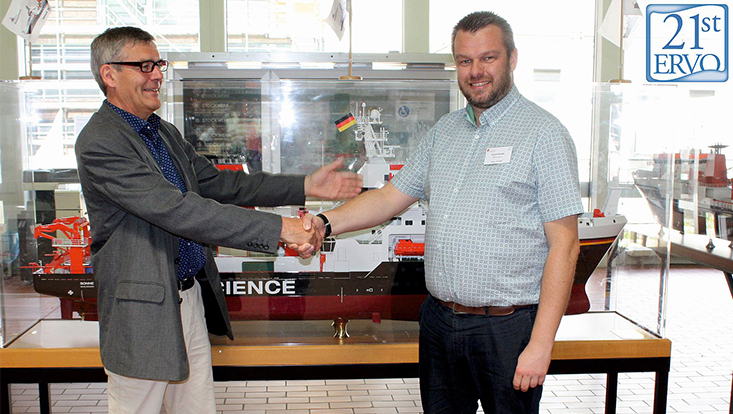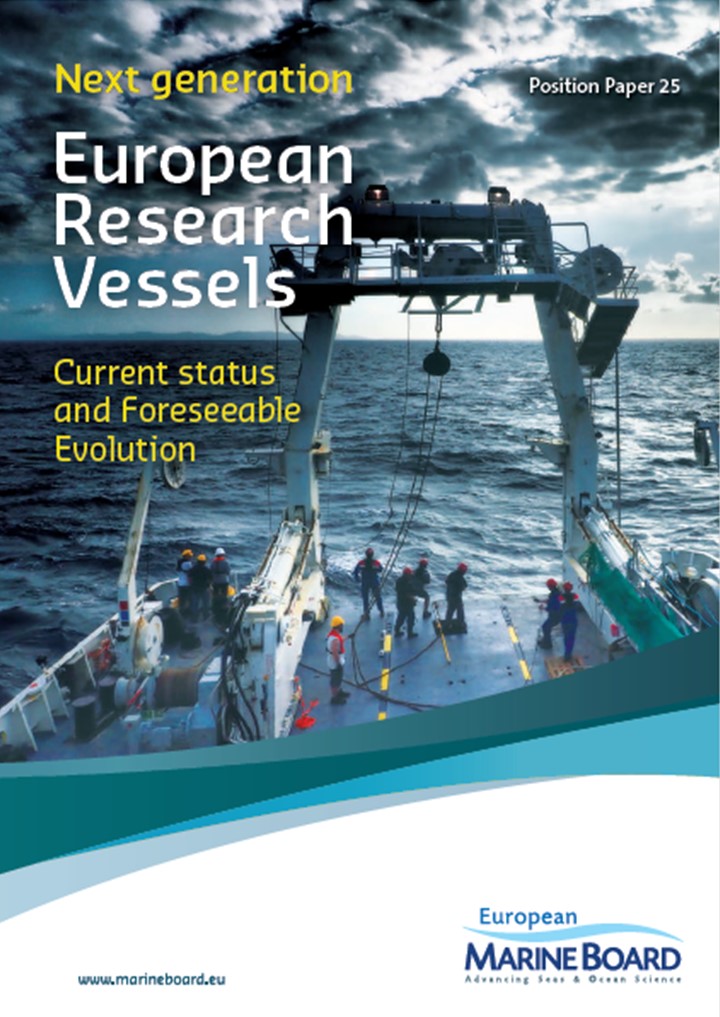With the construction of the new Belgian Ocean Class RV that is currently ongoing, Belgium is well preparing for a bright ocean science future.
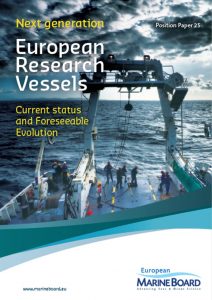 In a new Position Paper, the European Marine Board together with the European Research Vessel Operators (ERVO) group provide a comprehensive look at the European research vessel fleet. The publication presents an overview of the current fleet, its capabilities, equipment and management. It also looks to the future, highlighting what will be needed to ensure that the European fleet can continue to provide the same high level of support to science, in particular in specialized areas such as the deep-sea and Polar regions. It also goes beyond the fleet itself, to consider the training of fleet personnel, fleet management, and the role of research vessels in the wider context of ocean observations.
In a new Position Paper, the European Marine Board together with the European Research Vessel Operators (ERVO) group provide a comprehensive look at the European research vessel fleet. The publication presents an overview of the current fleet, its capabilities, equipment and management. It also looks to the future, highlighting what will be needed to ensure that the European fleet can continue to provide the same high level of support to science, in particular in specialized areas such as the deep-sea and Polar regions. It also goes beyond the fleet itself, to consider the training of fleet personnel, fleet management, and the role of research vessels in the wider context of ocean observations.
The further development of our understanding of the ocean is fundamental to address many of the global challenges that society faces today, such as climate change and food security. Although new and autonomous data collection platforms (fixed and mobile continuous measuring equipment and satellites) are increasingly used to investigate, monitor and evaluate the marine environment, research vessels (RVs) remain a key infrastructure that enable scientists to gather data and conduct the research required to expand our knowledge for the purpose of both fundamental understanding and policy support. Physical sampling of the seabed, water column and marine fauna, as well as multi-beam mapping of the seabed, are examples of activities for which RVs remain critical. Also deploying and recovering tools such as moorings, remotely operated vehicles (ROVs), autonomous underwater vehicles (AUVs) and gliders, often relies on RVs.
However, research vessels and their equipment are large and sophisticated, and inevitably costly, infrastructures. It is therefore critical that their importance and indispensable role is clear and that appropriate investments are made to ensure the ongoing provision of scientific support. On November 6th 2019, the European Marine Board (EMB, a strategic pan-European Forum of 33 Member Organizations, including key marine research performing institutes, funding agencies and university consortia) launched a new Position Paper that provides an overview of the current European research vessel fleet and its capabilities, and recommends ways in which it should evolve to meet future science needs. The Position Paper #25 is titled « Next generation European research vessels: Current status and foreseeable evolution » and is the result of a collaboration with the European Research Vessel Operators (ERVO) group. ERVO is a European platform where RV operators discuss their national activities, projects, problems and plans for the maintenance, modifications and renewal of their research vessels.
Research vessels to address future science needs
The Position Paper describes the current fleet to be highly capable and leading on the world stage. However, with a typical life expectancy of a research vessel of 30 years, the fleet is ageing and urgently requires (re)investment to continue to be as efficient and capable as the scientific community and an effective policy require. Meantime also technology is developing fast and new research arises in specialized areas such as the deep-sea and Polar regions, and research vessels need to keep up the pace. Besides looking to the future needs, the Position Paper also goes beyond the fleet itself, and considers the training of fleet personnel, fleet management, and the role of research vessels in the wider context of ocean observations and the European Ocean Observing System (EOOS).
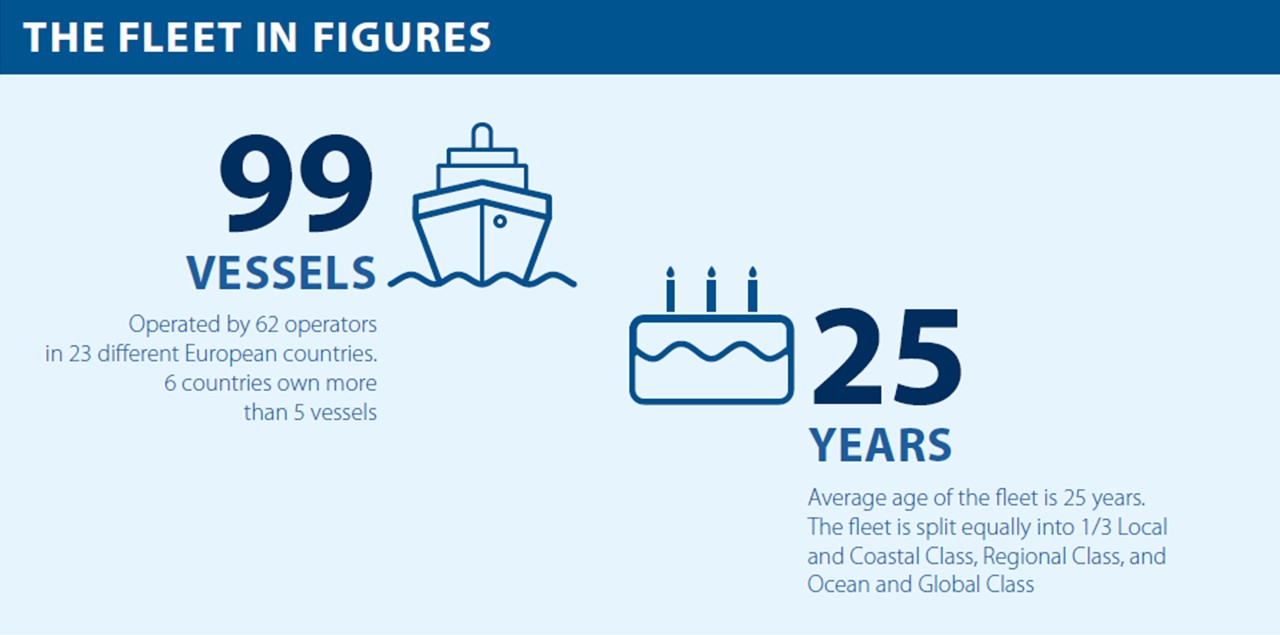
General recommendations
- Information and data on the capabilities and equipment of the European research vessel fleet should be kept up to date and be periodically reviewed by the infrastructure owners with support from the European Research Vessel Operators (ERVO) group
- For the European research vessel fleet to remain capable and fit-for-purpose, both the fleet and its scientific equipment and instruments should be renewed and developed as a matter of urgency
- The research vessel community should continue on its path towards greater collaboration in order to aim for equal access to research vessel time based on excellent science and not (constrained by) the country of origin of the scientist, for more effective use of resources, for appropriate training for all parties, and for strategic planning of the research
- Funding agencies should engage in discussions with the research vessel and marine science communities as well as other relevant stakeholders to identify key funding needs
- The research vessel operator community should continue to look forward to the emerging science and technological developments (e.g. towards real-time data delivery, new autonomous systems, new science frontiers) and work together with relevant parties to ensure that the fleet is ready to support these
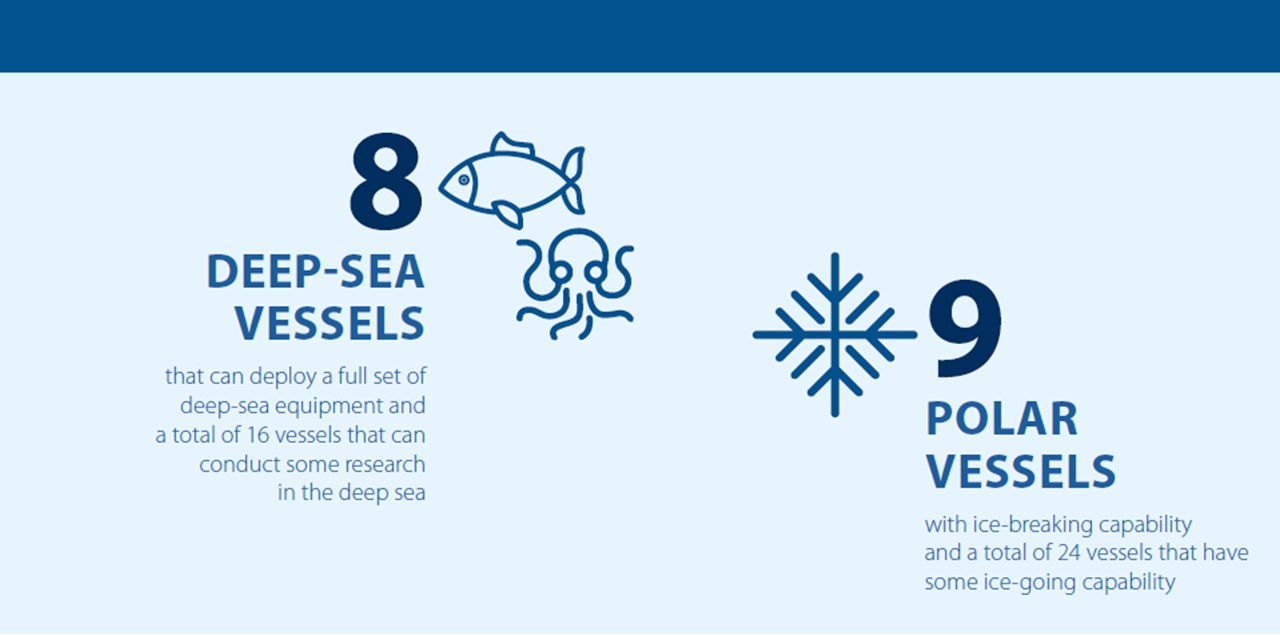
Belgian contribution
Belgium is represented in the EMB by the Fonds National de la Recherche Scientifique (FNRS), het Fonds voor Wetenschappelijk Onderzoek – Vlaanderen (FWO), en the Belgian Science Policy Office (BELSPO). BELSPO works closely with the Operational Directorate Natural Environment of the Royal Belgian Institute of Natural Sciences (RBINS) in support of selected EMB Position Papers and for communication aspects. Dr. Lieven Naudts, coordinator of the « Measurement Service Ostend & RV Belgica » group (part of RBINS-OD Nature), was one of the work package leaders in the EMB Expert Working Group on Next Generation European Research Vessels (WG Research Vessels) and is a contributing author of the resulting Position Paper. In June 2019, Dr. Naudts also was elected chairman of the European Research Vessel Operators (ERVO) group during their annual meeting in Hamburg, Germany. « Apart from exchanging experiences, the focus of ERVO in the following years will go to exploring collaboration opportunities to promote common interests and improve the service of RVs to the scientific community, policy makers, funding agencies and even private companies. Requesting the EMB to prepare a new Position Paper on RVs, was a logical thing to do », says Naudts. « With the construction of the new Belgian Ocean Class RV that is currently ongoing at Freire Shipyard (Vigo, Spain), in collaboration with Rolls-Royce Marine AS (now Kongsberg Maritime CM AS), Belgium is well on its way to be prepared for a bright RV future. The new RV Belgica will be technologically cutting edge and ensures the continuation of the Belgian contribution to the much-needed data collection in the marine environment, not only in the North Sea but also in the deep-sea and polar regions. » he adds.
